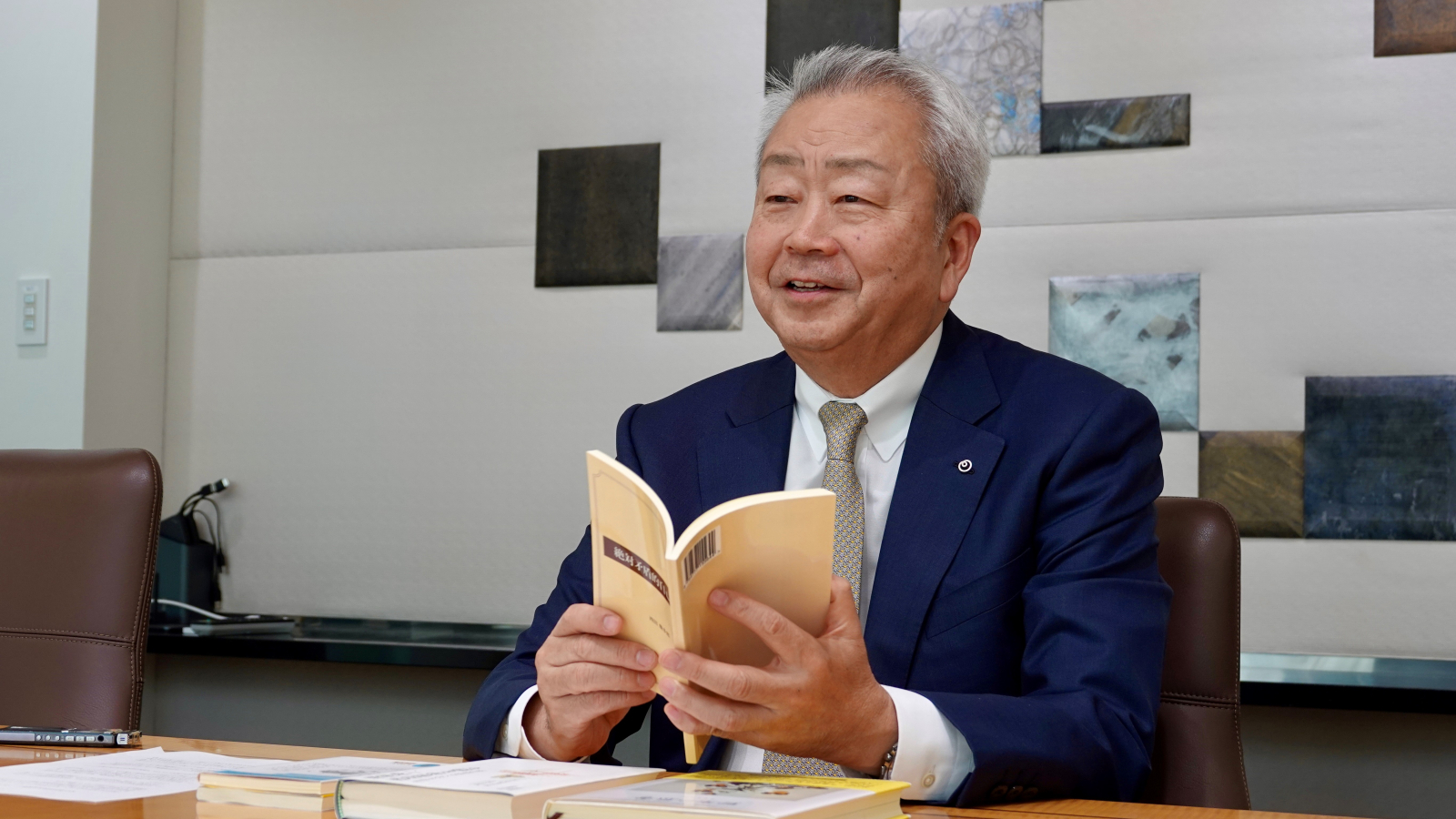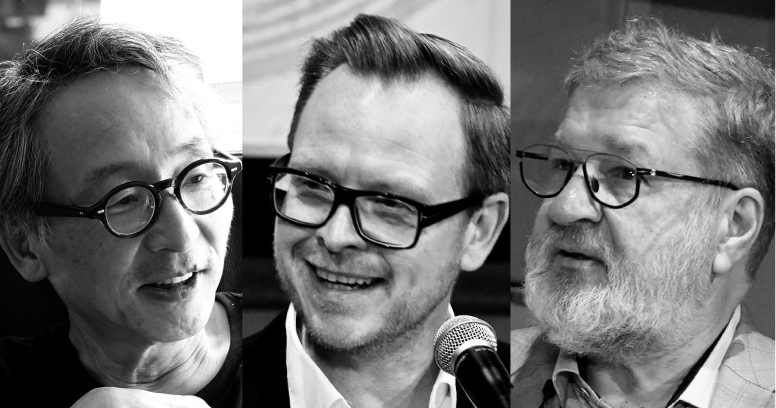【Relay Interview 2】 Jun Sawada, Chairman of NTT:Chapter 3 Kyoto Conference is a place to enjoy both differences and agreements—Expanding networks and accelerating momentum

This is the last part of a series of interviews with Jun Sawada, Executive Chairman of NTT, who serves as Co-Chairperson of the Kyoto Institute of Philosophy.
Details
Interviewer: Despite having studied engineering at Kyoto University, you have deep knowledge of history and philosophy.
Sawada: I tried various approaches to philosophy during my student days. But I wasn't very successful. I attempted to read Kitarō Nishida's "An Inquiry into the Good" that I had at home, but kept getting thrown off. I often couldn't make sense of it (laughs). However, my extensive random reading during my student days may have led to some serendipitous discoveries. Though my wife often complained that "the house will tilt" with all the books (laughs). Recently, I've mostly switched to e-books.
Regarding historical works, I was significantly influenced by Motohiko Izawa. I also learned a lot from Takeshi Umehara's "The Hidden Cross: On Horyuji Temple," Tadao Umesao's "An Ecological View of History," and its successor Heita Kawakatsu's "A Maritime View of Civilization." Another work that shocked me was Uexküll's "A Foray into the Worlds of Animals and Humans." I'm particularly interested in Uexküll's concept of "Umwelt."
Interviewer: That's the concept that different organisms perceive different worlds, isn't it? Professor Markus Gabriel of the University of Bonn, who serves as our Institute's Senior Global Advisor, also discusses in his book "Why the World Does Not Exist" how each person exists in their own world, which means there is no single "world."
Sawada: Yes, "Umwelt" applies to humans as well. Social media, where non-verbal communication is impossible, has partly contributed to this situation.
Interviewer: How do you view "Ethical Capitalism" as advocated by Professor Gabriel?
Sawada: I view it positively. It's not true that everything is "all for others," and it's too greedy to say everything is "all for oneself." I often say "half for oneself, half for others." I think this aligns with Professor Gabriel's argument.
However, implementing ethical capitalism is quite challenging. For instance, if we were to incorporate such perspectives into corporate law, when conflicts of interest arise between corporate stakeholders, should ethics and morality take absolute priority? Such discussions may still be necessary.
Interviewer: The First Kyoto Conference, scheduled for September 23 and 24, will welcome not only philosophers but also a wide range of participants including those from industry. What kind of conference do you envision?
Sawada: Recently, a business leader who was invited to the conference asked me, "What exactly should I do? Even if asked to speak, I know nothing about philosophy." I told them, "Various people will say various things, so please come to learn. That's the kind of conference this is."
I want to emphasize that the Kyoto Conference will not provide answers. While we might want to present "this is how the Kyoto Institute of Philosophy thinks," participants will likely have various opinions about that. We want each person to think while listening to these diverse views.
The Kyoto Conference will bring together philosophers and business people who share similar thoughts about the "Multilayered Society of Values." However, academia and industry use different languages. How to organize and think about these issues, where to place emphasis—these will differ from person to person, so please enjoy these differences.
The answers probably already exist among those who want to participate in the Kyoto Conference. If your opinions and values get slightly shaken during the conference, that's OK. It's OK to feel strengthened in your convictions, and it's also OK to feel stress and anger if your values differ.
Interviewer: The Institute's activities will continue after the First Kyoto Conference. What are you aiming for?
Sawada: Professor Deguchi made another good point when he said, "You can't do anything alone." I completely agree. Since we can't do anything by ourselves at the Institute, our next goal is to accelerate the momentum of creating an open-centered fellowship movement by having people from around the world participate in the discussion. There are already several organizations and groups overseas exploring potential collaboration with us. It's about seeing how far we can develop this movement while working hand in hand with such people.
At the Kyoto Conference, discussions will naturally arise about what should be done at the corporate, academic, and individual levels. While I'm thinking about potentially issuing a "Kyoto Declaration" in the future, if we can structurally document where the common ground lies in everyone's opinions and where the points of contention are, that could become the draft for the "Kyoto Declaration."
Others



